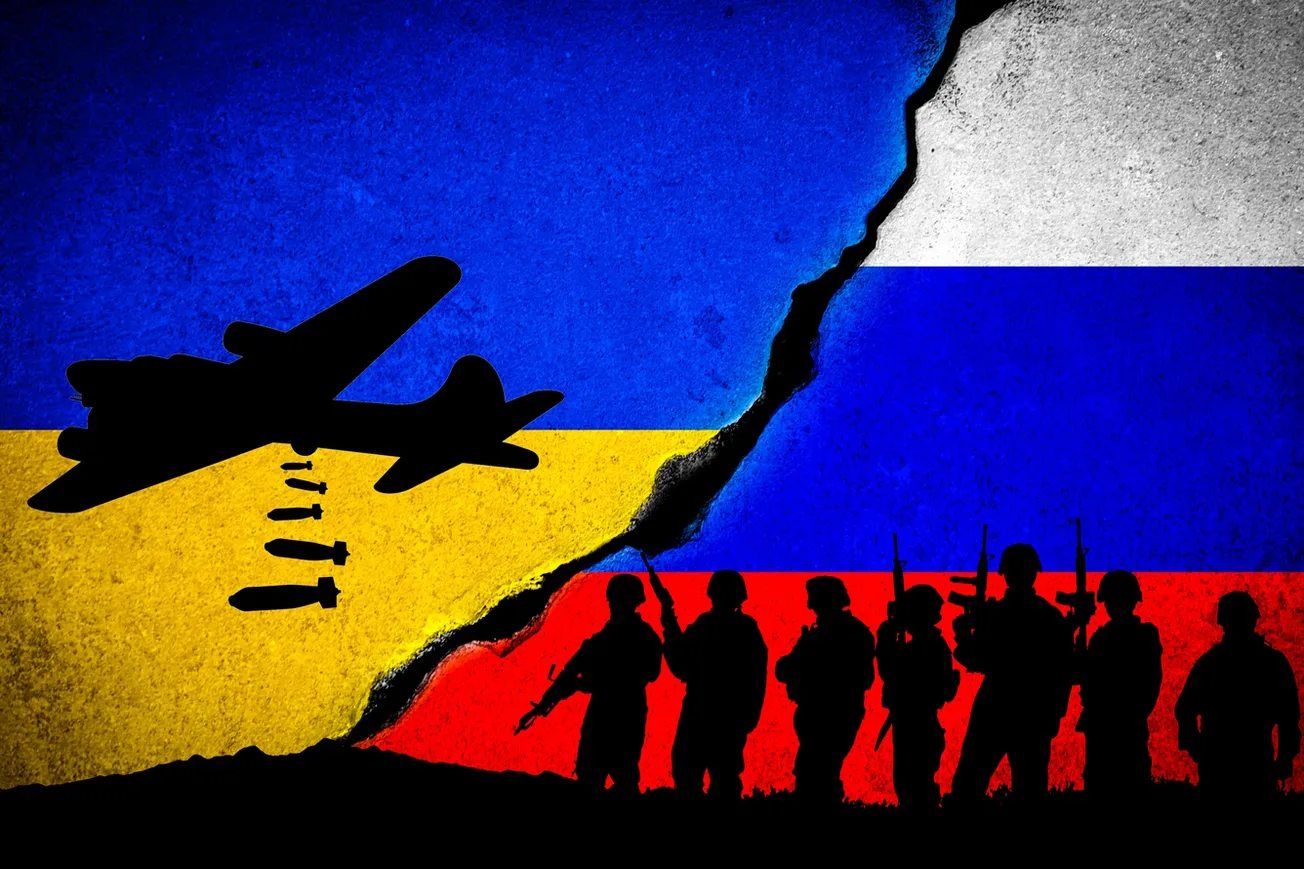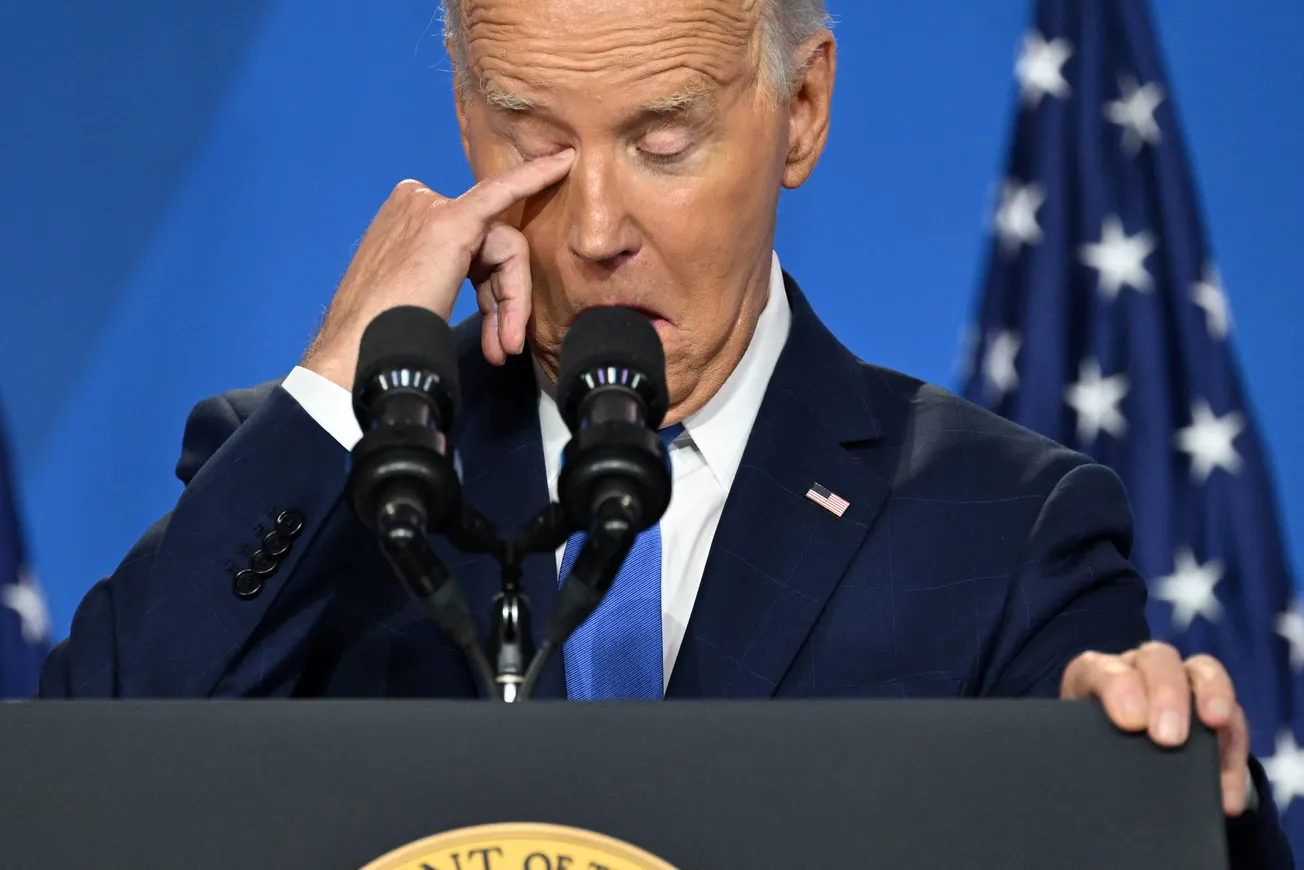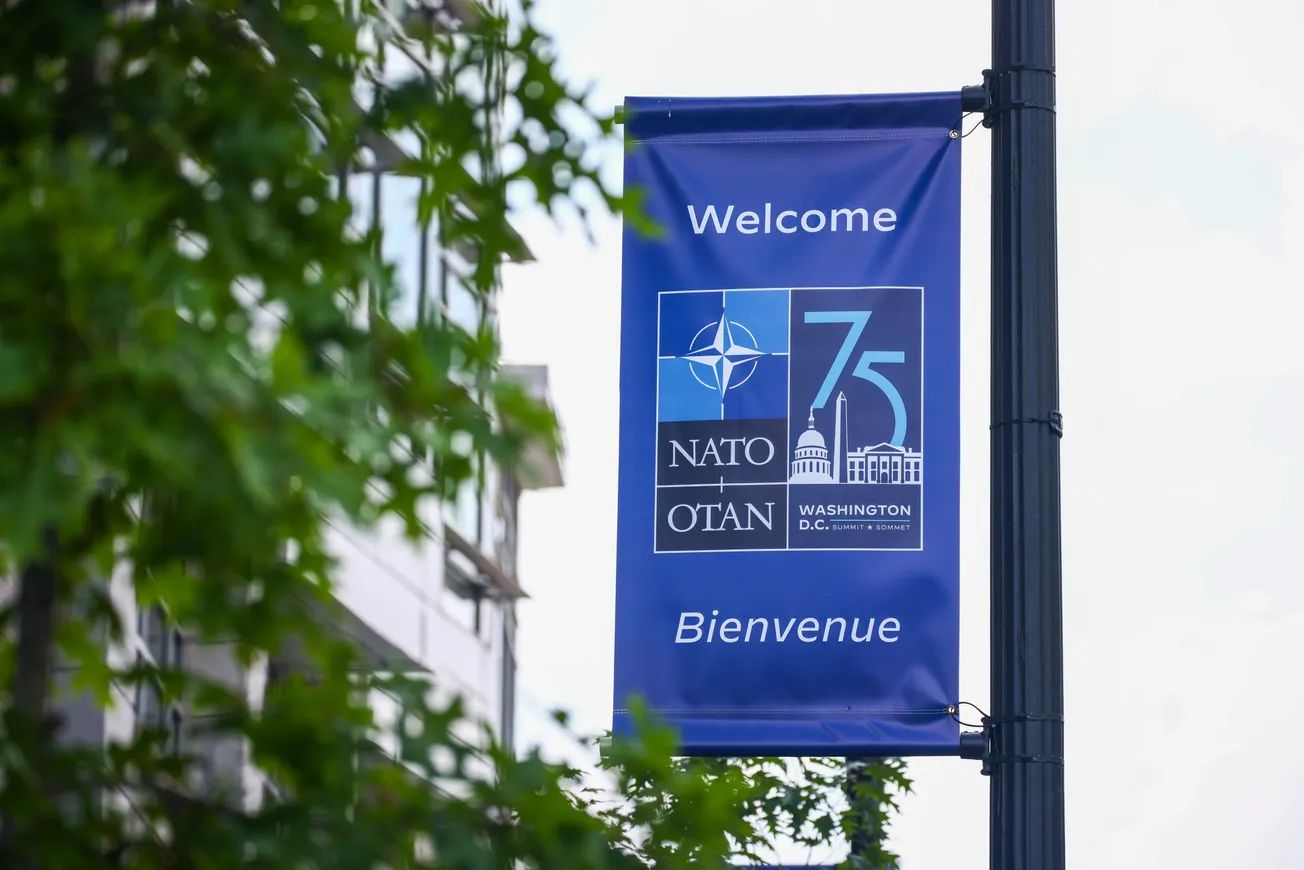The Russia-Ukraine conflict has dominated the news for nearly a year, and has led to yet another sharp political split in the U.S. as fears grow that the conflict could spiral out of control and lead to a wider war in Europe with Russia. Average Americans are deeply concerned, the latest I&I/TIPP Poll shows.
In this month's online I&I/TIPP Poll, taken from March 1-3 of 1,370 adults, we asked Americans a number of questions to gauge their opinions and feelings about the Russia-Ukraine war, and the U.S.' role in supporting Ukraine.
The first question asked: "How concerned are you that the U.S. and Russia will fight a war over Ukraine?" A lot, it turns out.
Of those responding, 69% said they were either "very concerned" (35%) or "somewhat concerned" (34%). Just 23% answered they were not concerned, with 16% saying "not very concerned" and 7% saying "not at all concerned." Another 8% said they were "not sure."
Concern wasn't just among members of one political party. Democrats were most concerned at 75%, but Republicans weren't far behind at 67% and independents at 63%. All other major demographic groups were at 60% or higher.
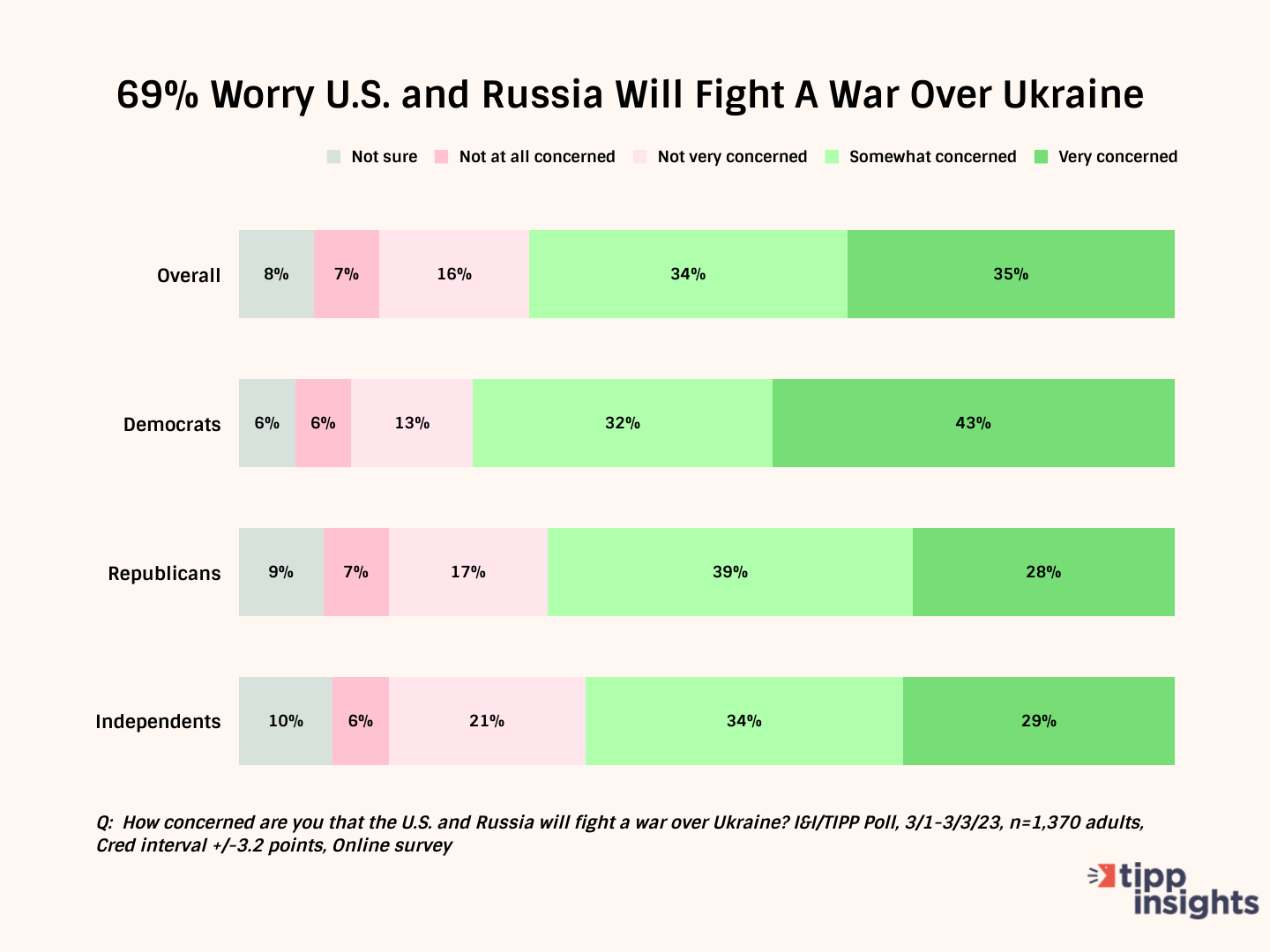
The next question asked participants "How concerned are you that the conflict between Russia and Ukraine will lead to the use of nuclear weapons?"
Not surprisingly, the answers were a bit stronger, with 72% answering "very concerned" (36%) or "somewhat concerned" (36%), while just 21% responded they were "not concerned," with 14% saying "not very" concerned and 7% "not at all" concerned.
Once again, the consensus across political parties was fairly strong, with Democrats at 78% "concerned," Republicans at 71%, and independents at 65%.
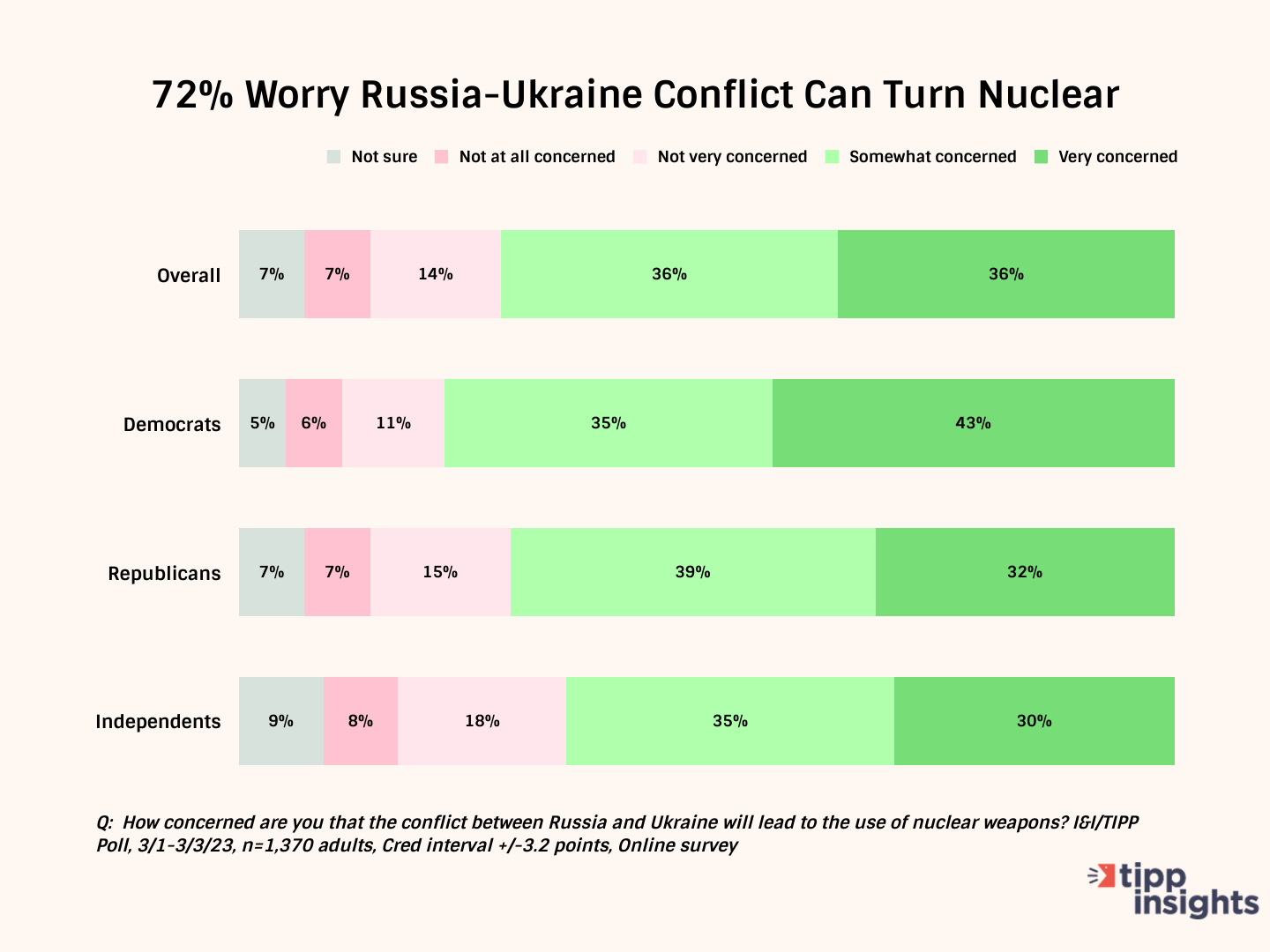
In our final two questions on the Russia-Ukraine war, the poll narrowed the focus a bit.
In one question, we asked: "Do you approve or disapprove of continued military support for the Ukraine war?"
When actual military aid was involved, support weakened a bit, though it remained strong. Some 60% of those who answered said they either approved such military support "strongly" (31%) or "somewhat" (29%). Meanwhile, 26% said they "disapproved" of such aid.
But here the broad political consensus seems to break down. While 74% of Democrats support military aid to the Ukrainian government, just 52% of Republicans and 49% of independents do.
While just 15% of Dems disapprove of the aid, more than a third — 36% of Republicans and 33% of independents — disapprove.
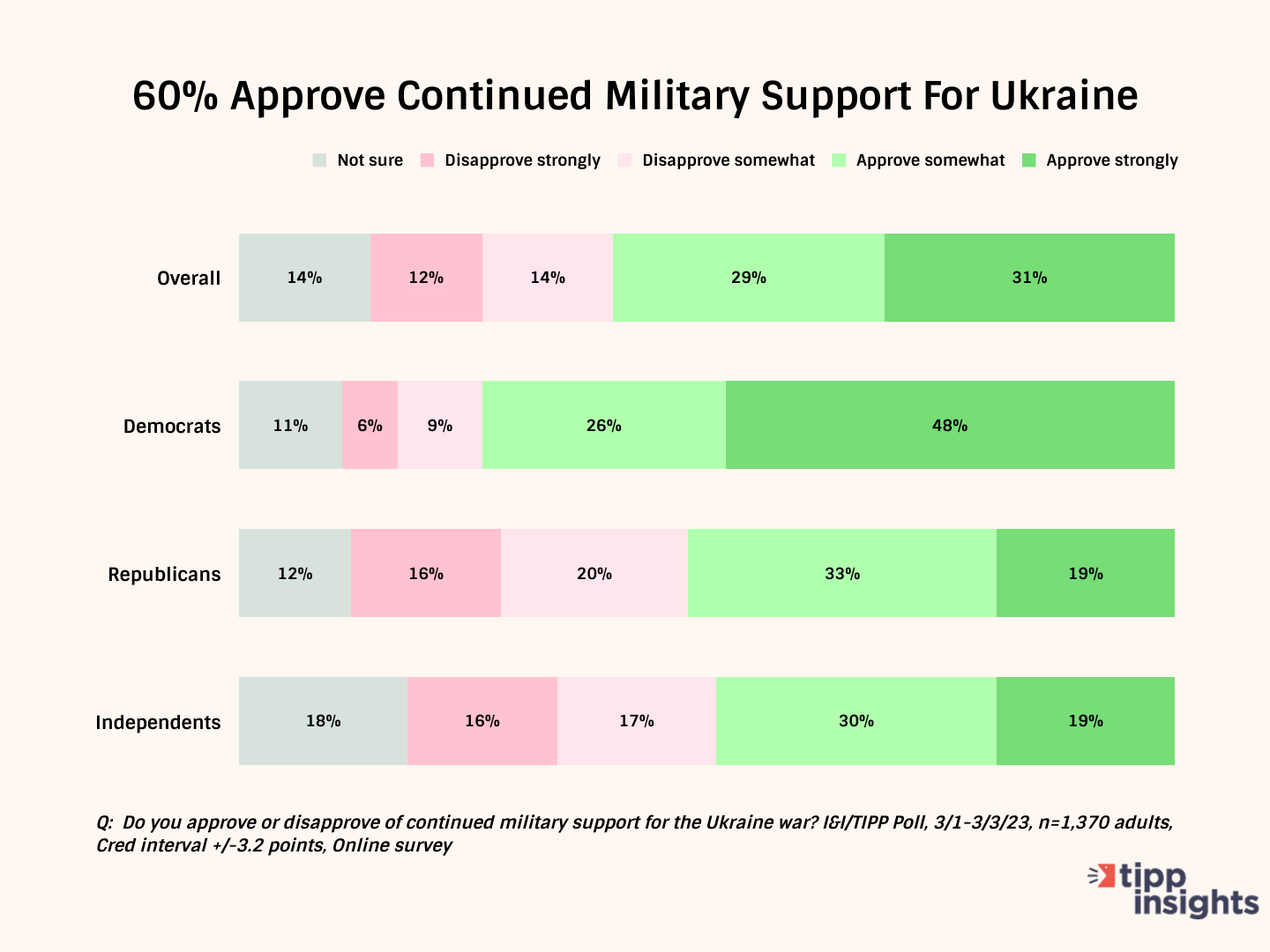
As a final question, I&I/TIPP asked respondents: "Given the current U.S. economic condition, do you approve or disapprove of continued financial support to Ukraine?"
Support waned when couched in terms of financial support, with a bare majority of 56% saying they approved of it, with 28% saying "strongly" and another 28% saying "somewhat."
Here, the political gap widened appreciably, with 74% of Democrats sounding their support for financial aid to the Ukraine, while just 44% of Republicans and 40% of independents agreed.
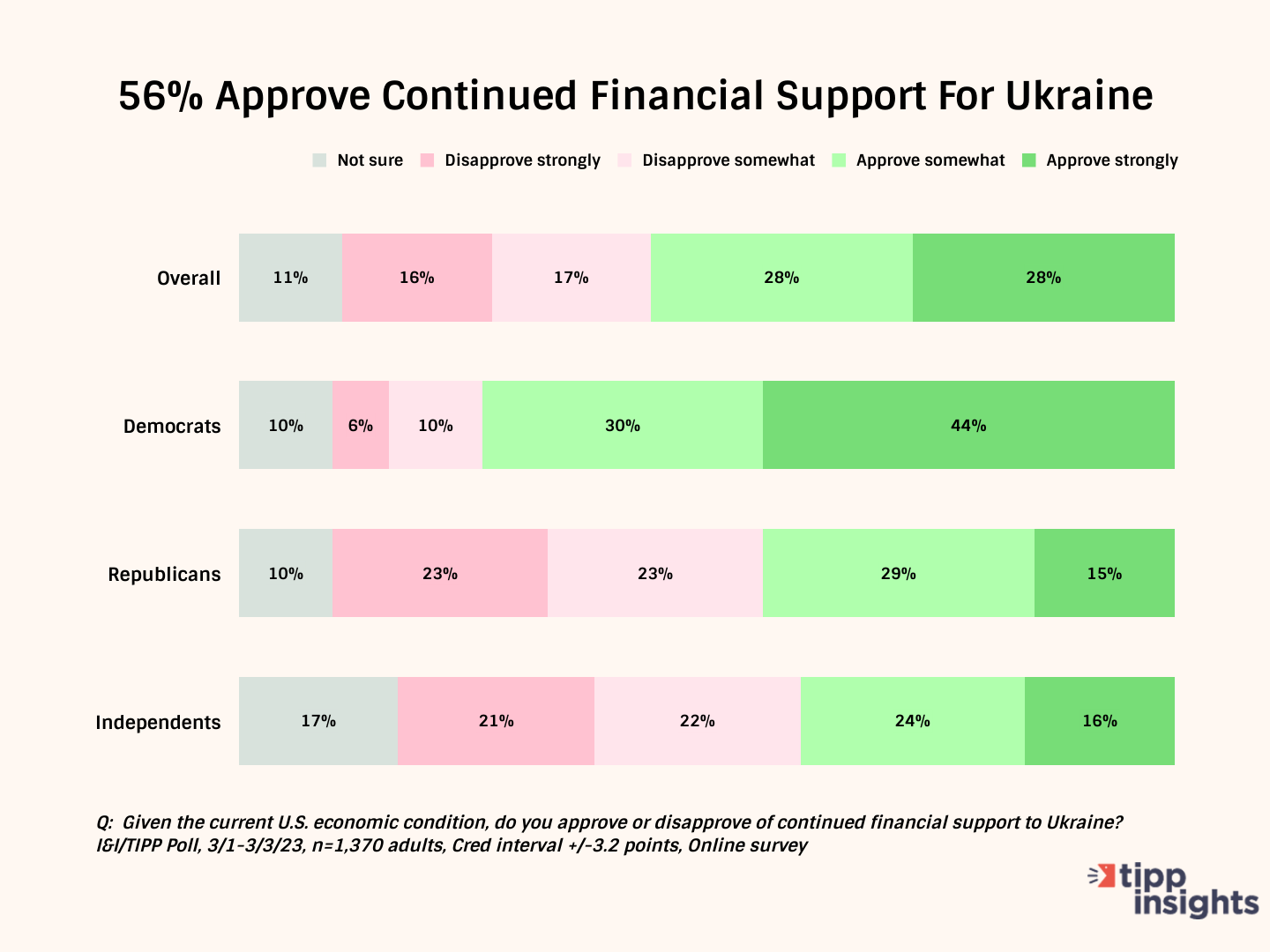
In sum, while most Americans show support for Ukraine following the February, 2022 invasion by Russia, that support is qualified and yet another area where political differences have emerged. Meanwhile, the uncivil war in Ukraine is heating up, with recent major developments that promise to keep diplomats and military officials busy:
- The International Criminal Court last week issued a warrant for the arrest of Vladimir Putin for kidnapping Ukrainian children and transporting them to Russia, while both political parties in the U.S. have sparred over whether we should be involved with helping Ukraine fight Russia.
- Newly released video shows to Russian SU-27 fighter jets dumping fuel on a U.S. Air Force MQ-9 Reaper reconnaissance drone, reportedly flying over international waters. Russia denies the incident. The U.S. alleges Russia used an "unsafe and unprofessional intercept" of the drone, which had to be ditched in the water due to damage to its propeller.
- Russian leader Vladimir Putin made a surprise visit to Mariupol in occupied Ukraine, his first trip to the area since the invasion over a year ago. Elsewhere, a Ukraine publication claimed "700+ Russian invaders, 21 tanks, and 8 artillery pieces wiped out in a single day in Ukraine", bringing the total since the start of the war to 165,000 killed or wounded, 3,532 tanks and 2,568 artillery pieces destroyed, and nearly 7,000 armored combat vehicles demolished.
This, as noted, all within the last few days. And the events are having a big influence on U.S. politics, as the I&I/TIPP Poll clearly shows.
Among elected Democrats and the party's rank and file, Ukraine has become something of a cause célèbre, with polls showing a sharp rise in Ukraine's favorability ratings in the last year. As a result, both Florida Gov. Ron DeSantis and former President Donald Trump have taken shots from Democrats for not wholeheartedly backing President Biden's pro-Ukraine policy.
"Our objective in Ukraine is to help and secure Europe, but Europe isn't helping itself," Trump noted last week, in answer to his critics. "They are relying on the United States to largely do it for them. That is very unfair to us."
DeSantis also weighed in: "While the U.S. has many vital national interests . . . becoming further entangled in a territorial dispute between Ukraine and Russia is not one of them."
But DeSantis, Trump and others have also taken shots from within their own party, where an angry split has emerged over how much financial and military aid should be given to Ukraine. Congress last year appropriated $112 billion to the war-torn nation.
“Simply opposing aid to Ukraine because President Biden supports it is not a viable foreign policy,” New Hampshire Republican Gov. and possible presidential candidate Chris Sununu wrote in a New York Times op-ed. “To abandon Ukraine would set off a negative chain of events for U.S. interests domestically and abroad.”
Other Republicans, in particular those associated with the neo-conservative wing of the party, such as Trump's former National Security Adviser John Bolton, have also roundly criticized Trump and DeSantis for not supporting Ukraine.
Take another look at the I&I/TIPP data again. It shows that a small majority of both Republicans and independents now disapprove of continued U.S. financial support for Ukraine, given the U.S.' own current economic problems. But a majority of both still support continued military aid.
While supporting Ukraine, Americans are wary. If the Ukraine war continues into next year, and the U.S. becomes further embroiled, it could turn into one of the decisive issues in the 2024 presidential election campaign, whether Trump, DeSantis and Biden decide to run or not.
I&I/TIPP publishes timely, unique and informative data each month on topics of public interest. TIPP’s reputation for polling excellence comes from being the most accurate pollster for the past five presidential elections.
Terry Jones is an editor of Issues & Insights. His four decades of journalism experience include serving as national issues editor, economics editor, and editorial page editor for Investor’s Business Daily.
Want to dig deeper? Download data from our store for a small fee!
Like our insights? Show your support by becoming a paid subscriber!
Please email editor-tippinsights@technometrica.com

